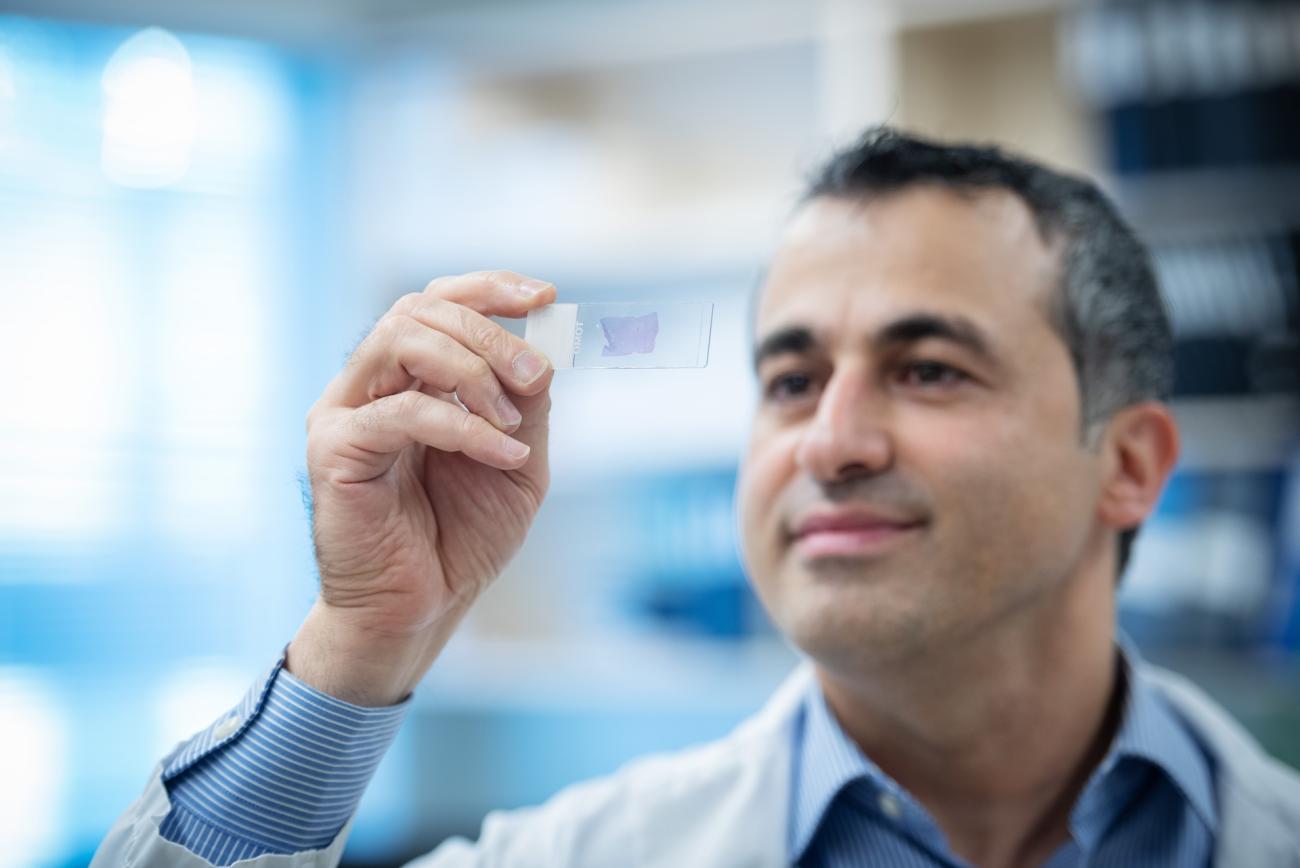
Using artificial intelligence, researchers have pinpointed a distinct high-risk endometrial cancer subset that would otherwise go unrecognized by traditional pathology and molecular diagnostics.
Using artificial intelligence (AI) to spot patterns across thousands of cancer cell images, researchers at the Vancouver Coastal Health Research Institute have pinpointed a distinct subset of endometrial cancer that puts patients at much greater risk of recurrence and death, but would otherwise go unrecognized by traditional pathology and molecular diagnostics.
The findings, published in Nature Communications, will help doctors identify patients with high-risk disease who could benefit from more comprehensive treatment.

“Endometrial cancer is a diverse disease, with some patients much more likely to see their cancer return than others,” says study co-lead Dr. Jessica McAlpine. “It’s so important that patients with high-risk disease are identified so we can intervene and hopefully prevent recurrence. This AI-based approach will help ensure no patient misses an opportunity for potentially lifesaving interventions.”
AI-powered precision medicine
The discovery builds on work by McAlpine and colleagues at B.C.’s Gynecologic Cancer Initiative, who in 2013 helped show that endometrial cancer can be classified into four subtypes based on the molecular characteristics of cancerous cells, with each posing a different level of risk to patients.
McAlpine and team then went on to develop an innovative molecular diagnostic tool, called ProMiSE, that can accurately discern between the subtypes. The tool is now used across B.C., parts of Canada and internationally to guide treatment decisions.
Yet, challenges remain. The most prevalent molecular subtype, encompassing approximately 50 per cent of all cases, is largely a catch-all category for endometrial cancers lacking discernable molecular features.
McAlpine turned to long-time collaborator and machine learning expert Dr. Ali Bashashati to try and further segment the category using advanced AI methods.

Bashashati and his team developed a deep learning AI model that analyzes images of tissue samples collected from patients. The AI was trained to differentiate between different subtypes, and after analyzing over 2,300 cancer tissue images, pinpointed the new subgroup that exhibited markedly inferior survival rates.
“The power of AI is that it can objectively look at large sets of images and identify patterns that elude human pathologists.”
The team is now exploring how the AI tool could be integrated into clinical practice alongside traditional molecular and pathology diagnostics, thanks to a grant from the Terry Fox Research Institute. The combined use of molecular and AI-based analysis could allow many patients to remain in their home communities for less intensive surgery, while ensuring those who need treatment at a larger cancer centre can do so.
“What is really compelling to us is the opportunity for greater equity and access,” says Bashashati. “The AI doesn’t care if you’re in a large urban centre or rural community, it would just be available, so our hope is that this could really transform how we diagnose and treat endometrial cancer for patients everywhere.”
For the full release, please visit the UBC News website.


